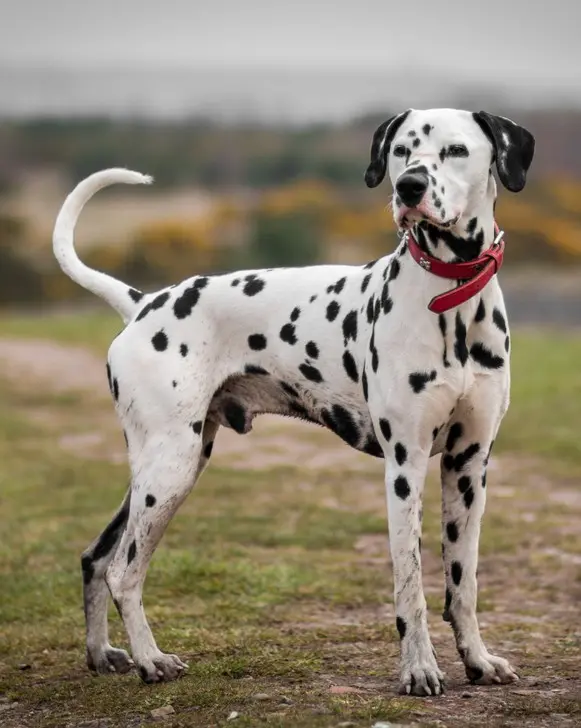Dalmatian

Size: Medium
Coat: Smooth-haired, Short
Trainability: Agreeable
Activity: Needs Lots Of Activity
Barking: Medium
Summary:
The Dalmatian is an iconic breed, instantly recognizable by its unique black or liver-spotted coat. Originally bred to be a carriage dog, this breed has a history of being used in various roles, from guarding coaches and horses to being a firehouse mascot, where they were known to clear the way for fire trucks. Dalmatians are known for their energetic, affectionate, and loyal nature. They are highly intelligent and love to be the center of attention, making them great companions for active families or individuals who can match their energy levels. While Dalmatians are friendly and sociable, they can also be independent and somewhat stubborn, which requires consistent training and leadership. They make excellent pets for families that can provide them with plenty of exercise and mental stimulation.
Care:
Dalmatians have a short, sleek coat that is relatively low-maintenance, but they still require regular brushing to manage shedding and to keep their coat healthy. Brushing a few times a week is usually enough to remove loose hairs and minimize shedding, especially during shedding seasons. Dalmatians are prone to ear infections due to their floppy ears, so regular ear cleaning is important to maintain their health. Despite their short coat, they can be sensitive to extreme temperatures, so they should not be left outside for long periods in hot or cold weather. This breed requires a lot of physical activity to stay fit and prevent boredom. Regular exercise, including daily walks, runs, or play sessions, is essential to keep a Dalmatian happy and well-behaved. Without enough exercise, they can develop behavioral problems such as excessive barking or chewing.
Conditions:
Dalmatians are best suited for active families or individuals who can provide them with the physical activity and mental stimulation they need. They thrive in environments where they have space to run and play, such as homes with large yards or access to open spaces. While they are adaptable, Dalmatians are not ideal for apartment living unless their exercise needs can be met with frequent walks and outdoor time. They are highly social dogs that enjoy interacting with people and other pets, though they may have a strong prey drive, particularly toward smaller animals. Early socialization and training are important to help them become well-adjusted and well-behaved companions. Dalmatians are generally good with children and other pets when raised with them, but they should always be supervised with smaller animals or other pets due to their energetic nature.
Back